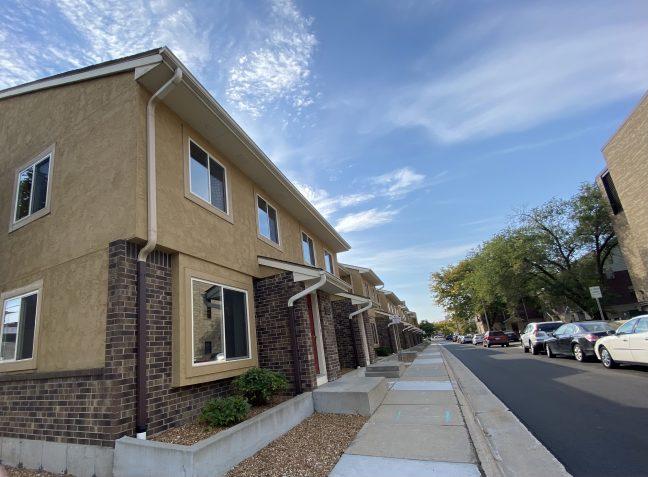In an attempt to create more housing, the city of Madison is looking to add housing units within close proximity to the new bus rapid transit line. The proposed solution involves creating new zoning regulations that would allow the city to expand housing offerings, create taller buildings and reduce traffic congestion.
This type of rezoning is called transit-oriented development, or TOD, and focuses on creating compact, pedestrian-center city spaces that revolve around high-quality transit systems. More specifically, the city is proposing a set of “overlay” regulations, which keeps intact existing regulations, compared to adding new rules for what is and is not permitted.
TOD rezoning has been on the table for discussion in Madison in some way for almost a decade, according to The Cap Times. Initially, historic districts, the University of Wisconsin campus and the downtown areas were excluded from these changes.
But now, four city alders along with the Transportation Policy & Planning Board and the Plan Commission are suggesting historic districts be included in the zoning changes.
Affordable housing complex not worth risk to natural wetlands
Sponsors of this plan argue that mitigating Madison’s housing crisis requires finding ways to increase density where it’s possible to do so. Since the downtown and campus areas are already concentrated, they argue, moving to increase housing availability in residential areas is the next logical step.
Though existing protections for historical neighborhoods would remain, homeowners and council members in these areas are resisting this change. The bottom line — they don’t want duplexes built in their neighborhoods. They argue that this would impact the integrity of historic areas, subsequently reducing the values of existing homes.
But this argument occupies an inherent position of privilege, considering the city’s dire need to create more housing — especially for those with lower incomes.
Three out of five of Madison’s historic districts are included in the proposal — University Heights, located in the Regent area, plus Third Lake Ridge and Marquette Bungalows, which are both located near Lake Monona on the near east side.
The “Regent Neighborhood,” as defined by Realtor.com, encompasses a portion of Madison north of the Southwest commuter path, south of Campus Drive, west of North Breese Terrace and east of Franklin Avenue. It also includes the University Heights historic neighborhood.
According to the City of Madison, this neighborhood historically housed families of university professors and other business people. This legacy of affluence has endured.
Wisconsin Supreme Court election may transform state’s future
Realtor.com places the median listing home price for the “Regent Neighborhood” at $650,000. Zillow data reveals a similar finding. The median home value for houses in the 53726 zip code — also encapsulating University Heights — is $691,708.
Realtor.com also combines the Third Lake Ridge and Marquette Bungalow historic districts into one area they call the “Marquette Neighborhood.” The median listing home price for this area is placed at $645,000.
Compared to Realtor.com’s valuation of Madison’s median home at $364,000, these prices are exorbitant. Choosing not to create more affordable options in the midst of a housing crisis is irresponsible.
According to the Census Bureau, the average household income for a resident of Madison is about $70,466. Housing prices listed in the $600,000’s are out of reach for the average Madisonian — let alone for those on the lower end of the income scale.
Building duplexes in Madison’s historic districts would create more affordable housing in desirable neighborhoods that have the space to accommodate them. Fears that duplexes could decrease the value of existing homes are simply unfounded.
According to a study from the Furman Center for Real Estate and Urban Policy, there is no substantial evidence that affordable housing reduces neighborhood property values. In fact, some findings suggest it can actually increase home values. This is a result of the “population growth effect,” which contends that creating more housing increases the population and stimulates the economy.
Madison climate plan demonstrates need for local efforts to combat climate change
Evidently, much of the resistance toward increasing housing density in Madison’s historic neighborhoods comes from a sense of NIMBY-ism, or Not In My BackYard. Public comments from Madison residents surrounding the zoning changes reveal anti-renter attitudes.
A column from Tone Madison explains how homeowners are quick to dismiss developments that increase home density, despite the fact that many existing options exclude lower-income residents, for whom buying a home is unrealistic.
But the reality is that Madison is experiencing a housing deficit that can be made up only by creating thousands of new units per year, according to The Cap Times. Dismissing solutions for the sake of historical preservation represents a critical disconnect from the needs of Madison residents.
Increasing housing density in historic districts is not the whole solution, or the only solution, for alleviating the housing crisis. But Madison has a responsibility to accommodate its residents. TOD overlaying — despite misunderstandings and controversy — is an innovative way to make better use of our space while creating more options for all.
Celia Hiorns ([email protected]) is a sophomore studying journalism and political science.




















